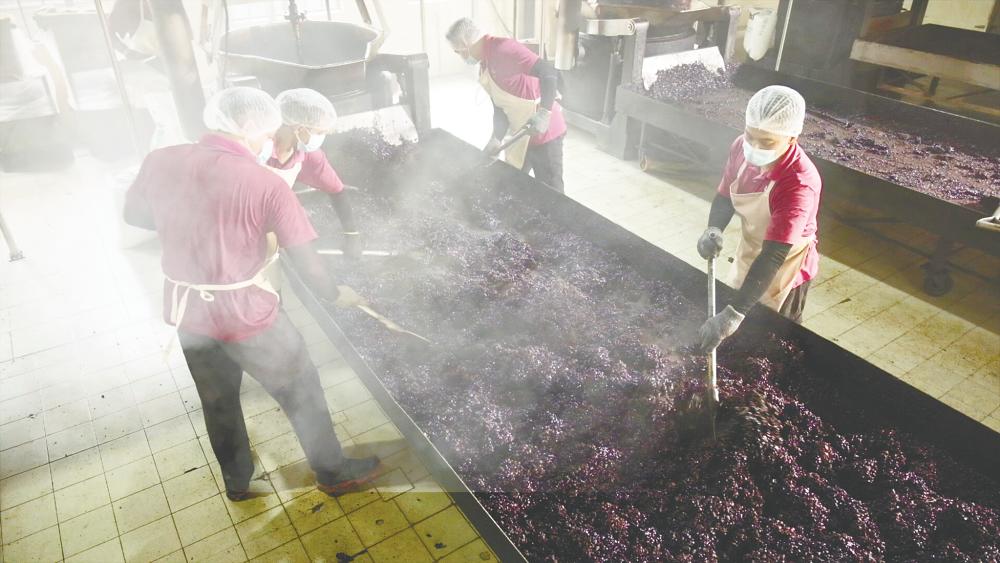PETALING JAYA: Malaysia has long been celebrated for its rich coffee culture, evolving from traditional Kopi O to contemporary favourites like the Americano. Over the years, the country has witnessed a surge in coffee consumption, fuelling the growth of local coffee shops and roasters.
Data from World Coffee Portal shows Malaysia’s branded coffee shop market grew by 28% in the past year, with more than 3,330 outlets. The rapid expansion has been driven by an economy that is projected to grow by 4% to 5% in 2024.
While trendy coffee chains and imported beans dominate the market, there remains a strong demand for traditional coffee-making methods that preserve Malaysia’s heritage and unique flavours.
Sai Kee Kopi, better known as Kopi 434, has been a key player in Malaysia’s coffee industry since the 1950s. Staying true to its roots, the company grows its coffee beans and preserves traditional coffee-making methods.
Its senior sales executive Darren Lee told theSun its roasting tradition dates back to the British colonial era.
“The British introduced coffee to Malaysia, but many consumed opium, which dulled their taste buds. To enhance the flavour for locals, the Hainanese added caramel during the roasting process.”
Sai Kee Kopi has a long history that dates back to 1953 when it was founded by Kiar Han Sai in Muar, Johor. It continues to thrive today by offering diverse products to remain relevant in a fast-changing market.
Lee said coffee beans are the seeds of a cherry-like fruit. Coffee trees produce berries, called coffee cherries, that turn bright red when they are ripe and ready to pick. The fruit is found in clusters along the branches of the tree.
He said Liberica berries, also known as the “elephant bean”, grown by the company are larger and have a more distinctive flavour.
“It’s called the elephant bean because of its size compared with other variants.
“However, preserving it is challenging due to its yield, which is far lower than other varieties, and the difficulty in roasting due to its irregular shape. Skilled labour is also essential to minimise waste and maintain quality.”
Despite these challenges, Sai Kee Kopi actively promotes it as a cultural icon and maintains its plantation in Muar, Johor to ensure the best quality.
While heritage coffee thrives, newer players like The Bloc. bring modern twists to the table. Founder Muhammad Azfar Roslan, 25, said his business focuses on mocktails with coffee, matcha, chocolate bases and butter coffee.
“Our coffee beans are of Brazilian origin and are medium roasted for a more balanced flavour, not too acidic or bitter. This medium roast also makes it easier for us to develop
new recipes.
“We grind the beans ourselves and use the AeroPress method as this approach brings out the best in our coffee’s aroma and taste.”
Muhammad Azfar said although the beans are sourced from Brazil, he buys them from a local supplier that roasts them, ensuring quality and affordability.
He said Malaysia has a strong community of coffee lovers, with demand consistently high.
“In just two-and-a-half months since opening my stall in Bangi, Selangor, I’m already considering expanding my business as it has proven very popular and profitable.”
For coffee enthusiast and barista at The Bloc. Hazim Imran, 25, Malaysia’s coffee scene offers the best of both worlds.
“I enjoy my Americano, but I still crave a
cup of Kopi O now and then. Both traditional and modern coffee styles can co-exist as Malaysians appreciate them for different reasons.”
Hazim views the influx of international chains and modern coffee styles as a positive development.
“It’s not a bad thing that many coffee chains are entering the market. It’s great to see our coffee culture growing and making its mark on the world stage too.
“However, kopitiam and traditional coffee shops will always have a place as locally sourced coffee is always the best.”









